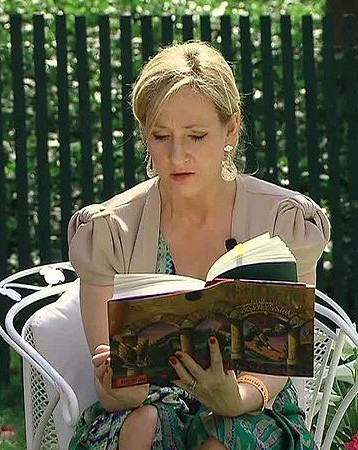
Word of the Day: Censor
Today’s word of the day is censor. It is one of those English words that can be used as a noun or as a verb. As a noun, it refers to a person who is “an official who examines books, plays, news reports, motion pictures, radio and television programs, letters, cablegrams, etc., for the purpose of suppressing parts deemed objectionable on moral, political, military, or other grounds; any person who supervises the manners or morality of others: an adverse critic; a faultfinder” (https://www.dictionary.com/browse/censor). As a verb, it means “to examine and act upon as a censor” or “to delete (a word or passage of text) in one’s capacity as a censor.” In other words, “to censor” means to do what a censor does, more or less.
The word entered English in the 1530s and referred to a Roman official who was in charge of taking the census, counting people, as well as having oversight of manners and morals. According to www.etymonline.com, the word entered into English in the 1530 “from Middle French censor and directly from Latin censor, from censere ‘to appraise, value, judge,’ from PIE root *kens- ‘speak solemnly, proclaim’ (source also of Sanskrit amsati ‘recites, praises,’ asa ‘song of praise’).” Further, the website says, “From 1640s as ‘official empowered to examine books, plays (later films, etc.) to see they are free of anything immoral or heretical.’ By the early decades of the 19c. the meaning of the English word had concentrated into ‘state agent charged with suppression of speech or published matter deemed politically subversive.’”
In 1605, Ben Jonson, John Marston, and George Chapman collaborated on a play entitled Eastward Hoe (or Eastward Ho!). It was a city comedy, a popular genre in the Jacobean period (during the reign of King James I, as Jacobus is the Latin form of James). City comedies were concerned with such issues as fraudulent business practices, sexual intrigue, and social climbing. One thing that Jonson, Marston, and Chapman did not do before premiering the play at the Blackfriars Theater, an indoor theater where it was performed by the Children of the Queen’s Revels, was getting the permission of Edmund Tylney, the Master of the Revels. As a result, even though the play was performed and entered into the Stationer’s Register, its production resulted in Jonson’s and Chapman’s arrest and imprisonment (Marston was, apparently, not in town when the arrests happened).
The problem with Eastward Hoe was that it made fun of people from Scotland, since King James and some of his closest councilors were from Scotland, and of the King’s habit of selling titles. The King received some complaints about the satire, and as a result, the playwrights were arrested and the play was banned from the stage until 1614.
This kind of action is precisely what we think of when we hear the word censorship, when we think of a censor. But the tendency to disapprove of an author or a work, and the desire to suppress that author’s work, still exists even in the enlightened democracies of the West.
For instance, J. K. Rowling has been, for the last 20 years, perhaps the most popular and successful writer in the world. Her Harry Potter novels and movies have made her a billionaire. But recently she wrote a tweet that has cast all her popularity into doubt. She wrote:
“Dress however you please.
Call yourself whatever you like.
Sleep with any consenting adult who’ll have you.
Live your best life in peace and security.
But force women out of their jobs for stating that sex is real? #IStandWithMaya #ThisIsNotADrill”
The issue concerns a woman named Maya Forstater, who had a contract with the Center for Global Development. But her contract was not renewed because of a series of comments she made, like “I reserve the right to use the pronouns ‘he’ and ‘him’ to refer to male people. While I may choose to use alternative pronouns as a courtesy, no one has the right to compel others to make statements they do not believe.” Her defense of biological gender has been interpreted as being transphobic, meaning that she opposes the political stance of those who claim that a man who identifies as a woman really is a woman, despite any biological features that might argue the contrary. Forstated, and now Rowling because of her support for Forstater, are considered TERFS, or trans-exclusionary radical feminists.
Now, I don’t want to get into transgender issues, especially the fight between radical leftist supporters of the transgender movement and radical leftist feminists who think that men who identify as women should not be allowed in women’s spaces. Rachel Hampton of Slate says that Rowling cannot be considered a friend of the LGBTQ+ community (even though her only problem seems to be with the T part of that community). Jameela Jamil announced that she would be unfollowing Rowling. Vox’s Aja Romano said, “JKR just ruined Harry Potter, Merry Christmas.”
The next step, of course, will be for Rowling’s works to be challenged and then banned from government-run schools and public libraries. I remember when Harry Potter and the Sorcerer’s Stone came out and was banned from the library of the Christian school where I work. But this banning will not be about the content of the book but about the character or opinions of the author. Of course, I could be wrong, and it could be that people will continue to read the Harry Potter novels, but the fact that people in our society believe that they should be able to supervise the morals of others is too obvious. And it still happens that people will try to censor the stuff that they think others shouldn’t read, for whatever reason.
The image is from Wikipedia: “Author J.K. Rowling reads from Harry Potter and the Sorcerer’s Stone at the Easter Egg Roll at White House. Screenshot taken from official White House video.”